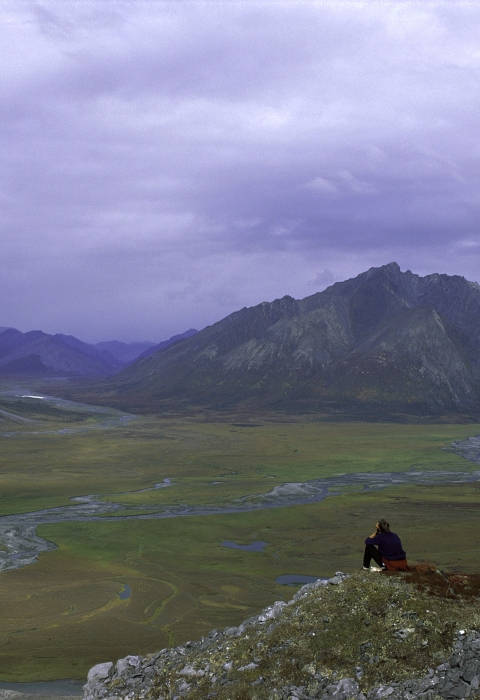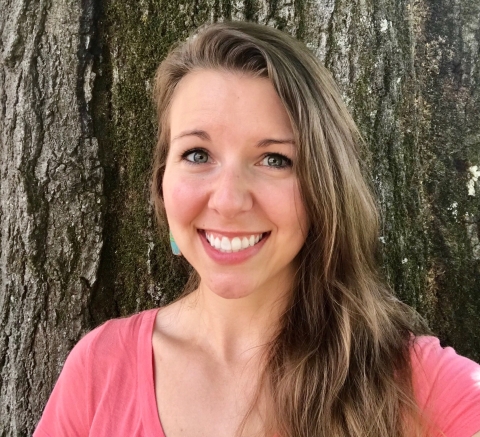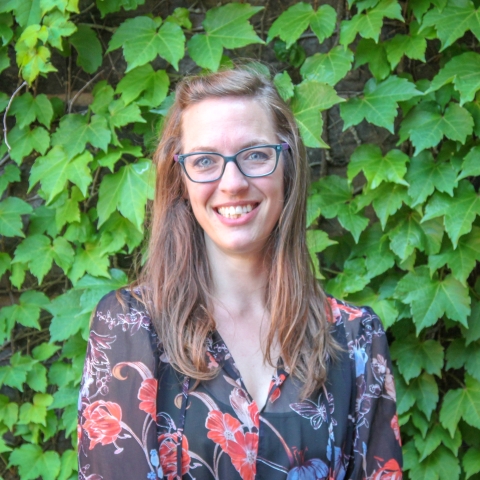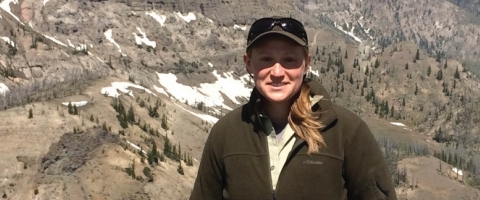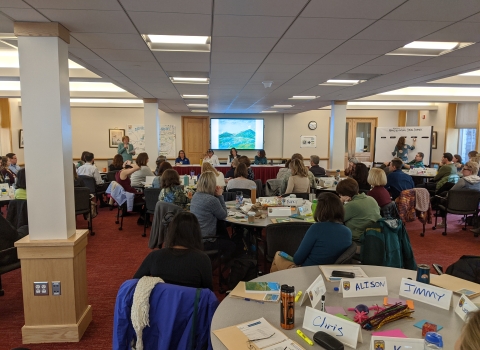We recently completed our first-ever batch hire of senior social scientists. The hiring action is a historic milestone in our efforts to integrate the conservation social sciences into our work. Please join us in welcoming our new colleagues, Shannon Westlake, Kelly Green Guilbeau, Kiandra Rajala, and Brad Milley!
Shannon Westlake, Science Applications, South Atlantic-Gulf and Mississippi Basin Regions
Tell us about yourself.
I am originally from the Finger Lakes region of upstate New York, which is an area full of natural wonders including numerous lakes, waterfalls, forests, and wetlands. I am currently located in Lexington, Kentucky. Some of my favorite hobbies include hiking, chasing native insect pollinators with my camera, and spending time with my family, partner, and four-legged kids.
The social sciences include a lot of disciplines. What are your areas of interest and expertise?
My interests and expertise are grounded in conservation social science, primarily human dimensions and how to promote the spread and adoption of conservation practices. I am committed to understanding people’s attitudes toward conservation practices, the social normative pressures they experience, and the perceived constraints that influence their ability to act. I am also interested in furthering the integration of social science components into conservation research and application, so we can better evaluate and improve the efficacy of ongoing and future U.S. Fish and Wildlife Service efforts.
In one line or less, what’s the best piece of life or career advice you ever received?
“Don’t Quit.” (I received this advice when I took a risk and left my previous job to pursue my passions and a career in the conservation field knowing it was going to be a challenging, but rewarding, road ahead.)
Connect with Shannon at Shannon_Westlake@fws.gov.
Kelly Green Guilbeau, Science Applications, South Atlantic-Gulf and Mississippi Basin Regions
Tell us about yourself.
I’m driven by my curiosity about humans and our connection with the natural world. After working for several years in the Midwest and Pacific Northwest regions of the U.S., I returned home to south Louisiana to bridge my first career in mental health counseling with my second career in environmental conservation. I am now located in Lafayette, Louisiana, where I spend much of my time outdoors, whether volunteering with fellow master naturalists to restore pockets of Cajun prairie, reading fiction, or crafting.
The social sciences include a lot of disciplines. What are your areas of interest and expertise?
My areas of expertise fall within the realms of psychology and sociology, heavily considering how values and culture influence motivations and decisions related to conservation. I also enjoy projects related to outreach and communications, especially when I can infuse creativity and inclusively engage underrepresented audiences.
In one line or less, what’s the best piece of life or career advice you ever received?
The best advice I’ve received has to do with authenticity; when I show up as my full self, I create space for others to do the same.
Connect with Kelly at Kelly_Guilbeau@fws.gov.
Kiandra Rajala, Science Applications, Great Lakes Region
Tell us about yourself.
I’m originally from western Montana and recently moved to East Lansing, Michigan, for this position with the Midwest Region. While new to Michigan, my Rajala grandparents were both from the Upper Peninsula and I’m keen to explore the places of my Finnish roots. I enjoy many things in the outdoors and look forward to new adventures in new places.
The social sciences include a lot of disciplines. What are your areas of interest and expertise?
My social science expertise is rooted in using social psychology and environmental psychology to explore how people interact with and respond to the environment. This involves examining the feedbacks between people and their environment through understanding people’s relationships with places, preferences for ecosystem services, and perceptions and responses to social and ecological change. Given the breadth and depth of the social sciences, I am continually interested to learn from different disciplines and apply new approaches to help address conservation challenges and improve natural resource management.
In one line or less, what’s the best piece of life or career advice you ever received?
I’ve drawn a lot of inspiration throughout my life from quote attributed to Eleanor Roosevelt, “The future belongs to those who believe in the beauty of their dreams.”
Connect with Kiandra at Kiandra_Rajala@fws.gov.
Brad Milley, National Wildlife Refuge System, Human Dimensions Branch
Tell us about yourself.
I grew up in the Boston area and moved progressively west after high school, eventually landing in Fort Collins, Colorado, where I live with my wife, Kerry, and our two labs, Willow and Birdie. I love the West because of the opportunity that it provides me to explore our public lands through fishing, hunting, hiking, or some combination of all three.
The social sciences include a lot of disciplines. What are your areas of interest and expertise?
I’m fascinated by what makes people tick; I want to know why they think and behave the way they do when it comes to wildlife and our wild places. The field of social psychology helps me do just that and it’s what I got my degree in and spend a lot of my time working on.
In one line or less, what’s the best piece of life or career advice you ever received?
“You should think about getting a graduate degree in human dimensions.”
Connect with Brad at Brad_Milley@fws.gov.
